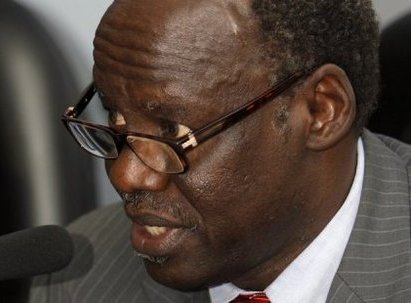S. Sudan opposition group denies links with Upper Nile militias
February 10, 2013 (JUBA) – The opposition Sudan People’s Liberation Movement for Democratic Change (SPLM-DC), has no links with the militia group that clashed with South Sudan army (SPLA) in Upper Nile state on Thursday last week, an official said.

“These are not new allegations. We have said many times that SPLM-DC is a political party. We do not have any militia group and we do not have any connection with any armed groups anywhere in this country. We have said this time again, but still there are people who have continued to make unfounded claims,” Erista told Sudan Tribune on Sunday.
He said most of the claims labeled against the party were baseless, with no evidence to support such allegations.
A breakaway faction of the South Sudan’s ruling party, the SPLM-DC was formed in 2009 in order to contest the 2010 general election.
As the only candidate to stand against the incumbent President of Southern Sudan Salva Kiir, Lam Akol received 7.01% of the vote. The SPLM-DC won 2 of the 170 seats in the National Assembly, officially becoming South Sudan’s largest opposition party.
The army said it repulsed a militia attack on Thursday, in which seven rebels died in Obudi area of South Sudan’s Upper Nile state.
“The army was able to repulse an attack carried out by the militias in our territory. The SPLA will continue to protect the people of South Sudan from such aggression”, SPLA spokesperson Phillip Aguer told a media briefing in Juba, the South Sudan capital Friday.
He accused the Sudanese government of backing the militias, a claim Khartoum denies.
The incident comes barely a week after the SPLA said one of its soldiers died in a ground and air attack allegedly carried out by the armed forces from neighbouring Sudan in the Renk county of Upper Nile.
At least three people, the army said, were wounded during the attack, which is reported to have displaced thousands of women, children and the elderly in the state.
South Sudan seceded from Sudan in 2011, but tensions between the two nations almost triggered a border conflict in April last year. A 2005 peace deal allowed South Sudan to opt for independence, but many other aspects of the deal, such as the status of disputed areas and demarcation of the border have not yet been fully implemented.
The two sides signed a deal in September last year that would have allowed South Sudan to resume oil exports – stopped a year ago over a transit fee dispute – and create a demilitarised buffer zone on the tense border.
However, implementation of the deal has stalled over security issues, with Sudan accusing the South of backing its former comrades who fight the Sudanese army in South Kordofan and Blue Nile – both of which border Upper Nile state.
Khartoum and Juba deny accusations of supporting rebel groups from both sides.
(ST)
